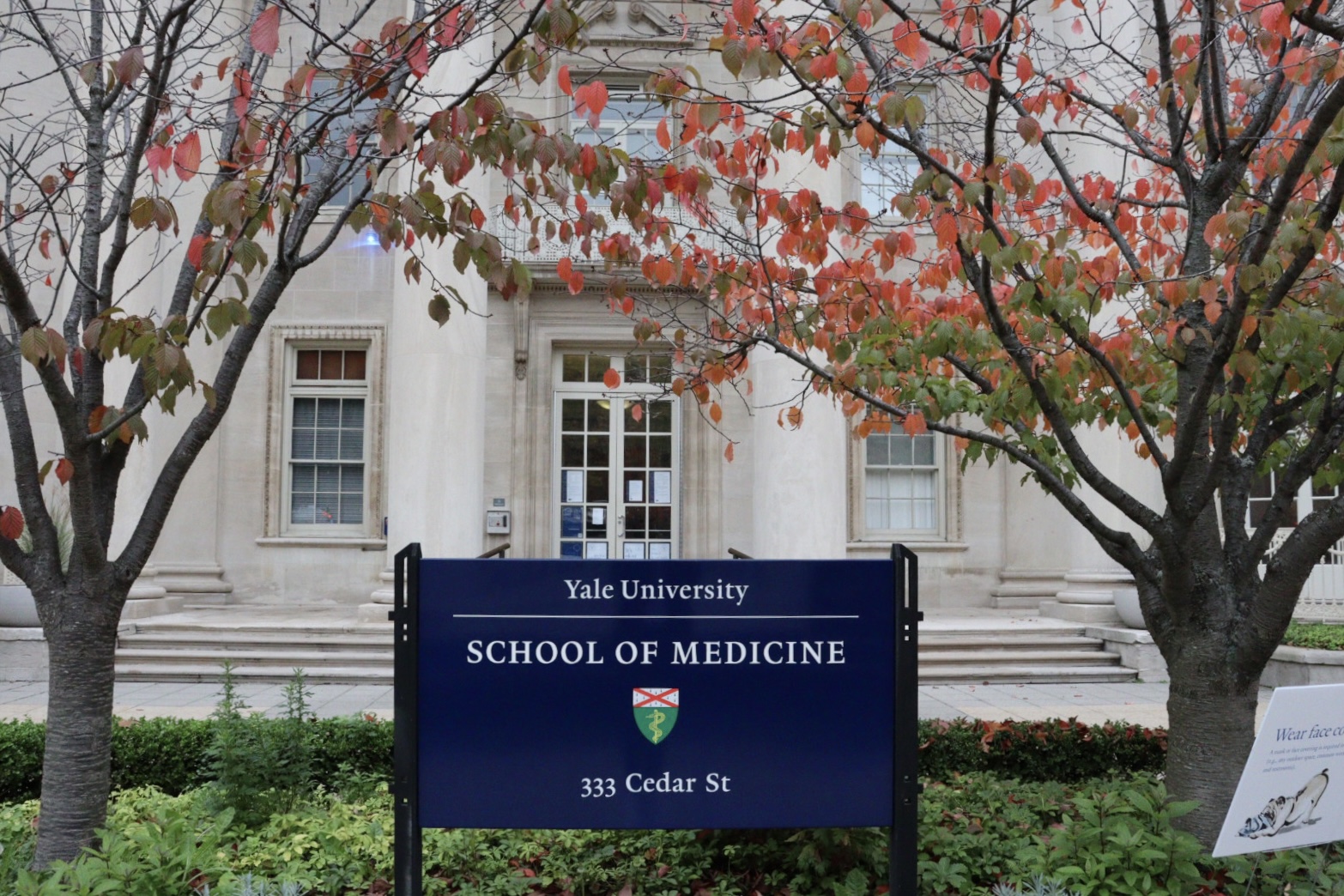Empowering recovery: Yale researchers awarded $7 million to research opioid use
The grant, which comes from the NIH and NIDA, will allow the researchers to study treatment retention.

Hedy Tung, Contributing Photographer
Content warning: This column contains references to intimate partner violence.
SHARE is available to all members of the Yale community who are dealing with sexual misconduct of any kind, including sexual assault, sexual harassment, stalking, intimate partner violence and more. Counselors are available any time, day or night, at the 24/7 hotline: (203) 432-2000.
A new Yale-led project seeks to study treatment retention for women facing intimate partner violence and opioid use disorder.
In October, Tami Sullivan, a psychiatry professor, and Jennifer Edelman, a professor in social and behavioral sciences, won a $7 million grant from the National Institutes of Health and National Institute on Drug Abuse. With this grant, the team, alongside Dawn Johnson, a professor in counseling psychology from Akron University, will research how well women who have experienced intimate partner violence and suffered post-traumatic stress disorder retain treatment for medication for opioid use disorder, or MOUD.
“We know that PTSD symptoms are common among women who experienced intimate partner violence, we know that half of the women who are in treatment are experiencing partner violence,” Sullivan said. “If we can address PTSD symptoms, we have a better shot at keeping women in care and supporting their involvement in their care.”
Treatment retention refers to the percentage of people who continue to seek care for their addiction. In their study, the researchers hope to study a stepped-care treatment model in which patients initially receive the least resource-intensive treatment, only later getting specialist treatment if necessary. With this new model, the team aims to encourage more women to choose to pursue care.
According to Sullivan, the stepped-care model will have multiple treatment levels. First, women who have experienced IPV will receive basic MOUD treatment at a substance abuse rehabilitation center.
Sullivan noted patients may have to come to the clinic every day to receive medication. Because this process requires substantial commitment, Sullivan said that external factors sometimes prevent patients from completing the process.
If patients need more rigorous treatment, they will be “stepped” up to present-centered therapy, or PCT+, a form of psychotherapy for patients with post-traumatic stress disorder. PCT+ typically takes eight weeks, and administrators do not need to be master’s-level trained. For Sullivan, this will allow more clinics to integrate higher-level therapy options into their treatments.
If patients still show significant markers for PTSD, the next step is a therapy-based treatment called HOPE. Johnson developed HOPE, which stands for Helping to Overcome PTSD through Empowerment, in 2020. As opposed to PCT+, HOPE is delivered by a master’s-level trained service provider with specific training in partner violence.
Sullivan noted that many of these women have experienced significant emotional and mental degradation. For her, HOPE is unique because it centers empowerment as an effective method of recovery.
The team plans to collaborate with two Connecticut clinics and one in Massachusetts over the next six years to administer their new treatment. If the treatment proves successful, they plan to disseminate this program to other treatment centers. In this study, women who choose to participate will be randomly selected to either receive only MOUD — the control group — or MOUD, PCT+ and HOPE, if needed.
“Our hope is that we will develop an effective, scalable, and sustainable treatment model via PCT+ and HOPE to promote retention in treatment with medications of opioid use disorder treatment for women experiencing PTSD symptoms due to intimate partner violence,” Edelman wrote in an email to the News. “This is a population deeply in need of effective interventions and we are excited to have the opportunity to have wonderful partnerships with opioid use disorder treatment providers and domestic violence service providers to work together to fill this gap.”
As the project progresses, the researchers hope to examine whether patient responses to this new form of treatment differ within racial and ethnic groups.
According to Brian Kiluk, a psychiatry professor at the School of Medicine and an expert in substance abuse disorders and cognitive behavioral therapy, many women are unable to get treatment for substance abuse or other mental health difficulties due to a lack of resources. Ultimately, he hopes that research like this, along with other developments in treatment administration, can help more people receive the care they need.
“There needs to be more nuanced and targeted approaches,” Kiluk said. “It’s not a one-size-fits-all. Getting more tailored approaches moving forward will be more likely to have better outcomes.”
While this research targets specifically women with OUD who experience IPV, the team seeks to apply this method of multi-pronged treatment to other subgroups battling addiction.
Women in the study can receive treatment at opioid treatment programs at the APT Foundation in New Haven, Liberation Programs in Bridgeport and Stanley Street Treatment and Resources in Fall River, Massachusetts.







